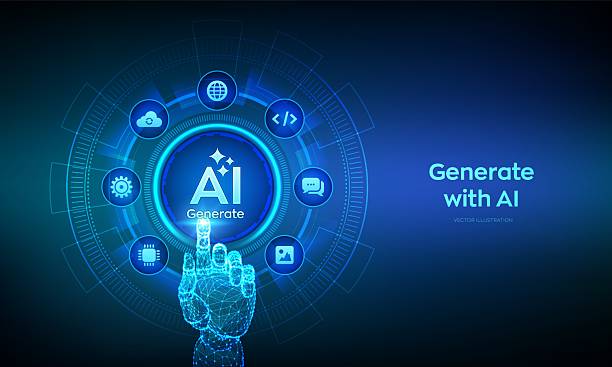What is an AI Robot and How Does It Work?
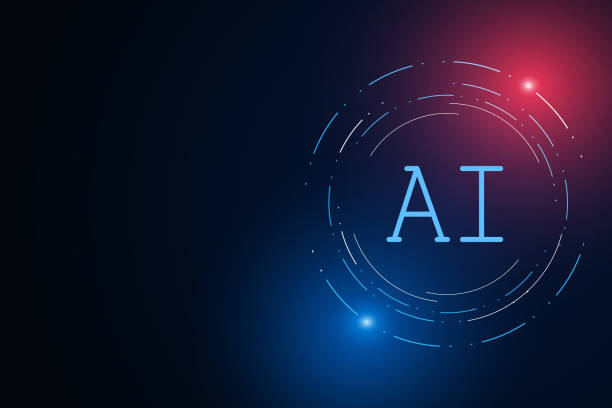
#AI_Robot (AI Robot) is a combination of two powerful fields: artificial intelligence and robotics.
Simply put, it is a robot that has the ability to understand, learn, reason, and make decisions using artificial intelligence algorithms.
Unlike traditional robots that can only execute a set of predetermined commands, AI robots are capable of interacting with their environment, learning from their experiences, and exhibiting smarter behaviors in various situations.
The operation of an AI robot involves collecting data through sensors, processing this data using AI algorithms, and finally, performing appropriate actions based on data analysis.
This process can include pattern recognition, event prediction, path planning, and even communicating with humans.
For example, a smart industrial robot can predict problems by examining data related to the production line and take necessary actions before they occur.
Or a social robot can understand people’s emotions by analyzing their facial expressions and tone of voice, and react appropriately.
Furthermore, the use of artificial intelligence and robots significantly helps in improving processes.
In summary, an AI robot is a machine that, by leveraging artificial intelligence, is capable of performing tasks that require human intelligence.
Are you bothered by losing customers who visited your site to buy?
Rasaweb is your specialized solution for having a successful online store.
✅ Significantly increase your online sales
✅ Build trust and professional branding among customers⚡ Get free consultation from Rasaweb experts!
Main Components of an AI Robot

An AI robot consists of several key components that work together to enable intelligent task performance.
These components include:
- Sensors: Sensors collect information from the surrounding environment.
This information can include images, sounds, temperature, pressure, etc.
There are various types of sensors, each designed to collect a specific type of information. - Processors: Processors process the information collected by sensors.
This processing includes data analysis, pattern recognition, and decision-making.
The processing power of processors plays an important role in the robot’s speed and accuracy. - Actuators: Actuators are responsible for moving the robot and performing physical actions.
There are various types of actuators, each designed to perform a specific type of movement. - Artificial Intelligence Algorithms: AI algorithms are the brains of the robot.
These algorithms help the robot analyze information, learn, and make decisions.
There are various types of AI algorithms, each designed to solve a specific type of problem.
The Machine Learning algorithm is one of the most important ones. - Software: The robot’s software includes codes that control its operation.
The robot’s software is responsible for managing sensors, processors, actuators, and AI algorithms.
The interaction and coordination between these components are key to the correct and efficient operation of an AI robot.
Deepmind is one of the leading companies in AI development, constantly making progress in this field.
Types of AI Robots and Their Applications
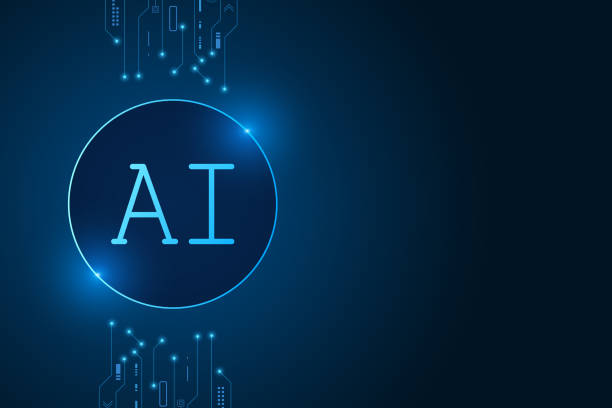
#AI_Robots exist in various types, each designed for specific applications.
Some of the most common types of AI robots include:
- Industrial Robots: These robots are used for repetitive and dangerous tasks in industrial environments.
They can help increase productivity, reduce costs, and improve safety. - Service Robots: These robots are designed to provide services to humans.
They can be used in hospitals, hotels, restaurants, and other service environments. - Social Robots: These robots are designed to interact with humans and provide emotional support.
They can be used as companions, teachers, or therapists. - Military Robots: These robots are used for dangerous and difficult tasks in military environments.
They can assist in gathering intelligence, defusing bombs, and conducting combat operations. - Space Robots: These robots are used for space exploration and scientific research.
They can help collect samples, conduct experiments, and repair equipment.
The applications of AI robots are expanding daily, and they are expected to play a more significant role in our lives in the future.
The Robotics Association publishes useful information about robots.
| Robot Type | Application |
|---|---|
| Industrial Robot | Performing repetitive tasks in factories |
| Service Robot | Providing services in hospitals and hotels |
| Social Robot | Interacting with humans and providing emotional support |
Advantages of Using AI Robots
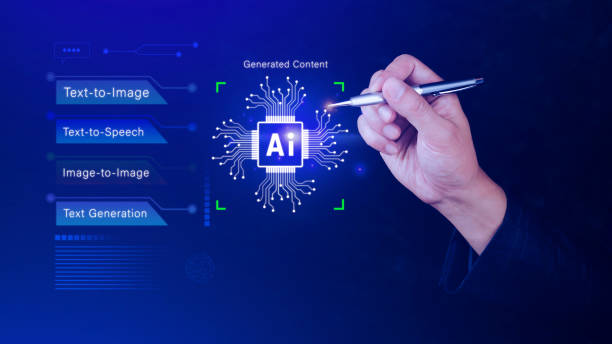
The use of #AI_Robots offers numerous advantages, some of the most important of which include:
- Increased Productivity: AI robots can perform tasks faster and more accurately than humans, leading to increased productivity.
- Cost Reduction: AI robots can reduce labor costs and also prevent human errors, leading to cost savings.
- Improved Safety: AI robots can perform dangerous tasks instead of humans, leading to improved safety.
- Increased Accuracy: AI robots can perform tasks with higher accuracy than humans, leading to improved product and service quality.
- Performing Difficult Tasks: AI robots can perform tasks that are difficult or impossible for humans, such as space exploration or working in hazardous environments.
These advantages have led to the rapid expansion of AI robot use across various industries.
#AI_Robots have brought about a profound revolution in the industrial world.
Did you know that a weak corporate website costs you many opportunities daily? Solve this problem forever with professional corporate website design by Rasaweb!
✅ Create a powerful and reliable image for your brand
✅ Attract targeted new customers and increase sales
⚡ [Get Free Website Design Consultation]
Challenges Ahead in the Development of AI Robots
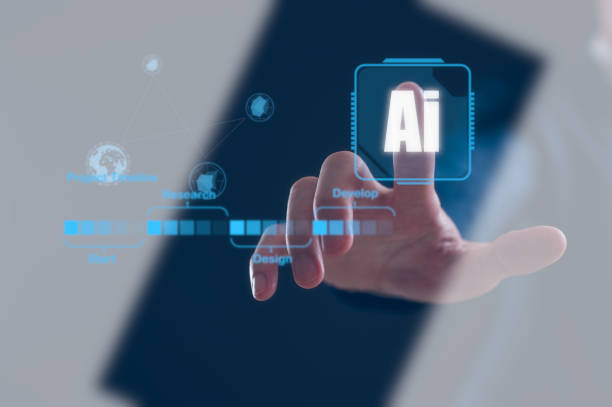
The development of #AI_Robots also faces challenges, some of the most important of which include:
- High Cost: Developing and building AI robots can be very expensive.
- Technical Complexity: Designing and building AI robots requires high expertise and technical knowledge.
- Ethical Concerns: The use of AI robots has raised concerns about ethical issues such as job displacement and discrimination.
- Technical Limitations: AI robots still have limitations in some areas, such as natural language understanding and solving complex problems.
- Security: The security of AI robots is a significant concern, as hacking robots can lead to irreparable damage.
Despite these challenges, researchers and engineers are continuously working to overcome these problems and develop more advanced and efficient AI robots.
IEEE is one of the organizations that focuses on ethics in artificial intelligence.
The Future of AI Robots
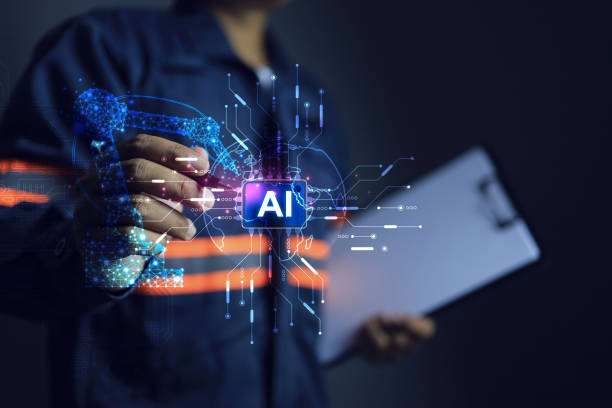
The future of #AI_Robots appears very bright.
With continuous advancements in artificial intelligence and robotics, AI robots are expected to play a much more significant role in our lives in the future.
Some predictions regarding the future of AI robots include:
- Expansion of Use in Various Industries: The use of AI robots will significantly increase in various industries such as manufacturing, healthcare, education, and transportation.
- Development of Autonomous Robots: Autonomous robots, capable of movement and decision-making without human intervention, will become more widely available.
- Development of Collaborative Robots: Collaborative robots, capable of working alongside humans in the workplace, will be increasingly utilized.
- Development of Personal Robots: Personal robots, which can be used as personal assistants, companions, or caregivers, will become more widely available.
- Development of Smarter and More Self-Aware Robots: Smarter and more self-aware robots, capable of independent learning, reasoning, and decision-making, will be developed.
#AI_Robots promise an exciting future.
Machine Learning and Its Role in Smart Robots
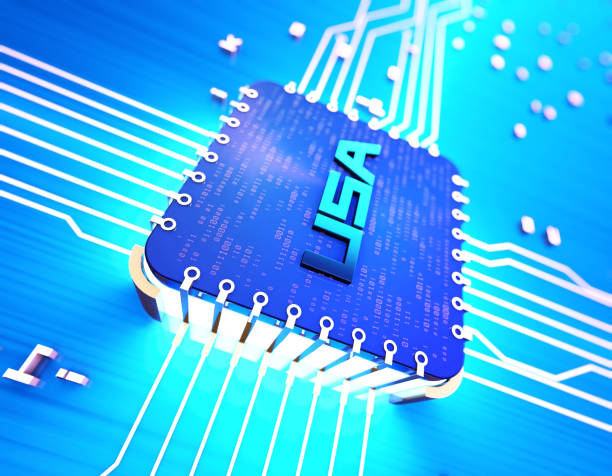
Machine Learning is one of the main branches of artificial intelligence that plays a vital role in the development of smart robots.
In fact, machine learning enables robots to learn from data and improve their performance without explicit programming.
This capability allows smart robots to adapt to dynamic and unpredictable environments and perform more complex tasks.
Machine learning algorithms, such as supervised learning, unsupervised learning, and reinforcement learning, help robots detect patterns in data, make predictions, and make decisions.
For example, an autonomous robot uses machine learning to recognize traffic signs, identify obstacles, and plan its route.
An industrial robot can also use machine learning to optimize production processes and reduce errors.
#AI_Robots achieve a new level of intelligence by leveraging machine learning.
| Machine Learning Algorithm | Application in Robots |
|---|---|
| Supervised Learning | Object recognition, image classification |
| Unsupervised Learning | Data clustering, dimensionality reduction |
| Reinforcement Learning | Robot control, motion planning |
AI Robot and Its Role in Various Industries

#AI_Robots have had a profound impact on various industries and have brought about tremendous transformations.
Some of the industries significantly influenced by this technology include:
- Manufacturing Industry: Smart robots are used in production lines for repetitive and precise tasks, assembling parts, and quality control.
This has led to increased productivity, reduced costs, and improved product quality. - Healthcare Industry: Surgical robots, nursing robots, and pharmacy robots are used in hospitals and medical centers for performing precise surgeries, patient care, and distributing medications.
- Logistics and Transportation Industry: Warehouse robots, delivery robots, and autonomous vehicles are used in the logistics and transportation industry for storing goods, delivering orders, and transporting people.
- Agriculture Industry: Agricultural robots are used for planting and harvesting crops, irrigation, spraying, and monitoring fields.
These are just a few examples of the widespread applications of AI robots in various industries.
With technological advancements, #AI_Robots are expected to play a more prominent role in the global economy and create new opportunities for businesses and individuals.
The company FANUC is one of the largest manufacturers of industrial robots in the world.
Are you dissatisfied with the low conversion rate of visitors to customers on your e-commerce site?
Solve this problem forever with professional e-commerce website design by Rasaweb!
✅ Increase visitor-to-customer conversion rate
✅ Create an excellent user experience and build customer trust
⚡ Get free consultation
Ethical Issues Surrounding the Use of AI Robots

The widespread use of #AI_Robots also brings significant ethical issues that require special attention.
Some of these issues include:
- Job Displacement: Automation and the use of robots can lead to the loss of many jobs, especially in industries with repetitive and simple tasks.
- Discrimination: AI algorithms may unintentionally be discriminatory and make decisions that are detrimental to specific groups of people.
- Privacy: Robots can collect a lot of information about individuals, which can lead to privacy breaches.
- Accountability: In case of an error or damage caused by a robot, determining accountability can be difficult.
- Control: Controlling smart robots and preventing their misuse is a significant challenge.
To address these ethical issues, it is necessary to develop appropriate laws and regulations, design AI algorithms transparently and fairly, and provide necessary training to individuals to enable them to interact with this technology responsibly and ethically.
Google’s AI Principles serve as an ethical guideline in this area.
The correct use of AI robots requires attention to these issues and efforts to find appropriate solutions.
How to Build an AI Robot? A Step-by-Step Guide
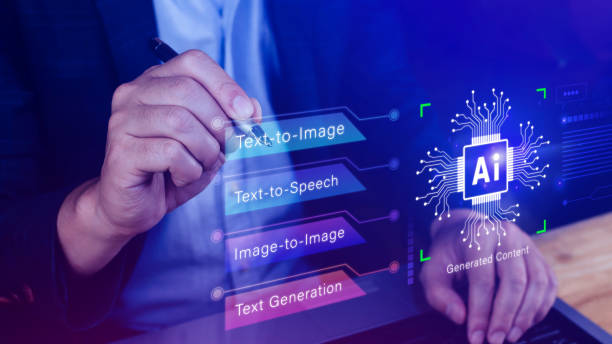
Building an #AI_Robot is a complex process, but with the right knowledge and tools, you can build a simple and functional robot.
Here’s a step-by-step guide to get started:
- Define the Goal: First, you need to determine the purpose of building your robot.
What do you want your robot to do? What problems should it solve? - Select Hardware: The robot’s hardware includes sensors, processors, actuators, and a power source.
Depending on the robot’s goal, you must choose appropriate hardware. - Choose Software: The robot’s software includes the operating system, AI libraries, and programming code.
You can use programming languages like Python and libraries such as TensorFlow and PyTorch. - Collect Data: You need a lot of data to train AI algorithms.
You can collect data from various sources or generate your own. - Train Algorithms: Train the AI algorithms using the collected data.
- Integrate Hardware and Software: Integrate the robot’s hardware and software and test the robot.
- Optimize: Optimize the robot’s performance and fix any problems.
Building a simple AI robot requires knowledge of programming, electronics, and artificial intelligence.
You can start with smaller projects and gradually enhance your skills.
Raspberry Pi is an excellent platform for getting started with robotics and AI.
#AI_Robots can be a fun and educational project.
Frequently Asked Questions
| Question | Answer |
|---|---|
| What is an AI robot? | It is a robot that uses artificial intelligence capabilities for environmental perception, reasoning, learning, and decision-making to perform complex tasks autonomously. |
| What is the main difference between a regular robot and an AI robot? | AI robots can learn and adapt to their environment, while regular robots typically operate based on fixed, predetermined programming. |
| In which fields are AI robots used? | In fields such as industry (production lines), medicine (robotic surgeries), services (customer support, smart vacuum cleaners), exploration (space and underwater), and entertainment. |
| How do AI robots learn? | They acquire new skills by analyzing large datasets and identifying patterns through machine learning and deep learning algorithms. |
| Can AI robots have emotions? | Currently, no. They can identify or simulate emotions, but they do not experience genuine emotions like humans do. |
| What are the most important advantages of using AI robots? | Increased productivity, reduction of human error, performance of dangerous or repetitive tasks, and provision of innovative and efficient services. |
| What challenges exist in the development of AI robots? | The need for abundant and high-quality data, complexity of algorithms, ethical issues, cybersecurity, and high research and development costs. |
| Are AI robots dangerous for humans? | With adherence to safe design principles and ethical regulations, no. Concerns are primarily related to social and economic impacts, such as changes in the labor market. |
| What is an example of an AI robot in daily life? | Smart vacuum cleaner robots (like Roomba) that automatically map and clean homes, or smart voice assistants (like Siri and Alexa). |
| How is the future of AI robots predicted? | They are expected to become smarter, more autonomous, and capable of more complex interactions with humans, playing a more significant role in industry, medicine, transportation, and daily life. |
And other advertising services from Rasaweb Advertising Agency:
- Smart Sponsored Content: A professional solution for user engagement focusing on attractive UI design.
- Smart Digital Advertising: An effective tool for online growth with the help of optimizing key pages.
- Smart Brand Identity: An innovative platform to improve website traffic with Google Ads management.
- Smart Digital Branding: A combination of creativity and technology for campaign management through attractive UI design.
- Smart Digital Branding: An effective tool for online growth with the help of attractive UI design.
And over hundreds of other services in internet advertising, advertising consultation, and organizational solutions.
Internet Advertising | Advertising Strategy | Sponsored Content
Sources
Amazing Applications of AI Robots
Comprehensive Guide to Artificial Intelligence and its Types
Introduction to Advanced Smart Robots
Impact of Artificial Intelligence on Industry and Technology
? Are you ready to revolutionize your business in the digital world? Rasaweb Afarin Digital Marketing Agency, by offering comprehensive services including professional e-commerce website design, search engine optimization (SEO), and advertising campaign management, is your partner on the path to achieving online success. Contact us today and secure the digital future of your business.
📍 Tehran, Mirdamad Street, next to Central Bank, Kazeroun Jonoubi Alley, Ramin Alley, No. 6

